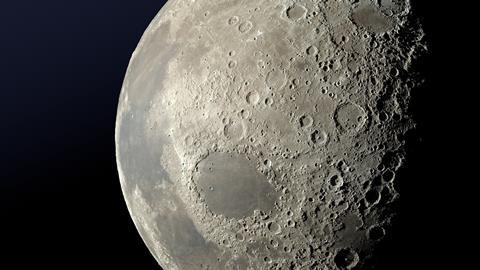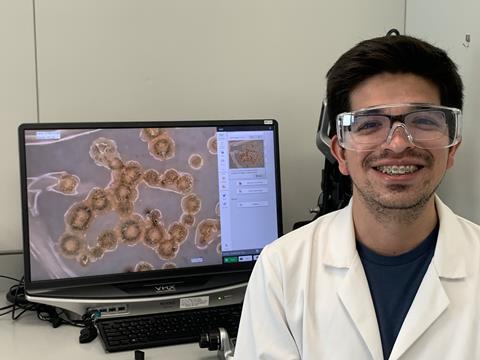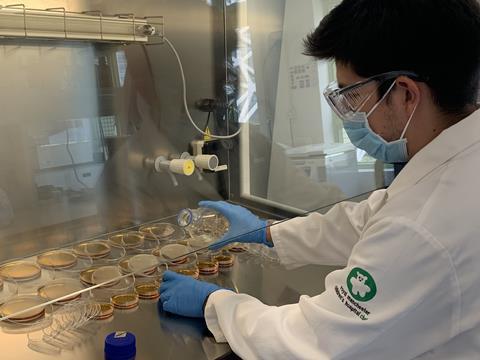My name is Diego Dueñas Parapar, I am Peruvian, I studied biology at Universidad Ricardo Palma (Lima, Peru) and my research topic is space microbiology.
Thanks to Applied Microbiology International, I carried out my placement in the State Key Laboratory of Lunar and Planetary Sciences at Macau University of Science and Technology in China. Mentored by Dr. André Antunes, a professor with expertise in astrobiology and extremophile microorganisms, I carried out a project on applied microbiology for space bio-constructions.

At present, humankind is looking to expand to the Moon and Mars for space exploration purposes. To accomplish this, it is a necessity to build stations on these celestial bodies.
In contrast to Earth, the problem is that it will not be possible to transport the materials we use here, such as cement, stone and water.
Local resources
In the space sector there is a term that is gaining a considerable presence in recent years: ISRU - In Situ Resource Utilization. Its focus on using local resources, rather than materials shipped from the surface of our planet into space, reduces mass, energy and costs, while creating or supporting local self-sufficiency.

ISRU encompasses several essential techniques and products, from energy and food to the production of shelter materials. Microorganisms applied to ISRU can provide solutions for the efficient use of local resources, and for this reason they are a very attractive alternative in space exploration research.
Bacillus bacteria have the ability to modify soils and produce biominerals that can be useful in construction. Our research was based on using this bacterium and mixing it with lunar soil simulants on simulated microgravity to take advantage of the lunar resource and set a new precedent in space construction, because this work is one of the first studies related to biomineral production and lunar soil simulants.
Biomineral production factors
We have found that lunar soil and microgravity influence the amount of biomineral production and also their composition. However, the studies have just started and there is still a lot of research to be done.

Studies in space can be applicable on Earth and this is a great example of that. Construction in environments where it is very difficult to access with cargo vehicles (such as deserts, mountains or caves) can require excessive costs in the transportation of materials and construction work. Therefore, using the resources of the environment with the help of bacteria can bring sustainable and economical solutions to this problem.
The project will be presented at the Research in Progress meeting Minerals and Microbes 2023 organized by the Environmental Mineralogy Group and the Geomicrobiology Network, at the Bernal Institute, University of Limerick, Ireland.
Life in space
Thanks to AMI, I feel that I have grown as a scientist and a person. In this placement I have carried out lab activities that I had not done before. I have learned how to work in a laboratory with different levels of biosafety and also how to use sophisticated laboratory equipment such as scanning electron microscopes and 3D microscopes.
I would like to thank the lab team, André, Marta, Allen, Dona, Junjie, and Yang, for being a great team and welcoming me in the best way. And of course, I want to thank my mother for teaching me to always fight for life and never give up despite the difficulties, I will always have you with me.
When I was a child I dreamed of studying life in space and today it is slowly becoming a reality. I will not stop until I become the best astrobiologist in the universe!







No comments yet